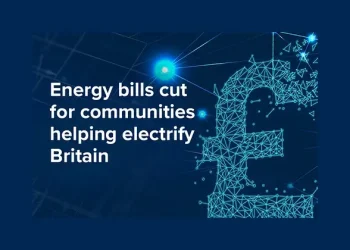The UK government has announced a transformative ten-year Industrial Strategy to reduce electricity bills by up to 25% for over 7,000 energy-intensive businesses from 2027, particularly benefiting manufacturing sectors like automotive and aerospace.
This initiative aims to enhance competitiveness, create skilled jobs, and stimulate economic growth across the nation.
Revitalizing UK Manufacturing
The new Industrial Strategy is set to significantly lower electricity costs for thousands of UK businesses starting in 2027.
By easing financial pressures on manufacturers, this move is expected to improve profitability and safeguard jobs in key sectors such as automotive and aerospace.
The strategy includes exemptions from levies like the Renewables Obligation and Capacity Market, enhancing international competitiveness.
Electricity Savings Unveiled
- Electricity bills for over 7,000 businesses will be cut by up to 25% starting in 2027.
- The British Industry Supercharger will increase discounts on electricity network charges from 60% to 90% for around 500 energy-intensive firms from 2026.
- A Connections Accelerator Service will be introduced by late 2025 to reduce grid connection delays for major projects.
- The strategy promises £25.6 billion through the British Business Bank to support innovative SMEs and workforce upskilling.
People and Economy
This strategy holds significant implications for the general public, especially those employed in manufacturing and related industries. It promises job security and potential wage growth through increased business competitiveness.
Reduced energy costs may also help stabilize prices of goods and services.
Additionally, faster grid connections mean businesses can expand more quickly, potentially improving local economies and employment opportunities across affected regions.
Voices of Industry Leaders
Industry leaders have welcomed the strategy as a much-needed step forward.
Stephen Phipson CBE, CEO of Make UK, praised it as a giant leap addressing challenges like skills shortages and high energy costs.
Rain Newton-Smith of CBI highlighted its role in raising living standards and improving competitiveness.
Rolls-Royce CEO Tufan Erginbilgic noted its strategic foresight in supporting aerospace and nuclear sectors.
Strategic Connections with Europe
An unexpected aspect of this strategy is its emphasis on linking the UK’s carbon pricing system with the EU’s emissions trading scheme.
This move not only supports domestic industries but also positions the UK as a collaborative partner in European climate policy post-Brexit.
Such linkage could balance economic competitiveness with environmental commitments while influencing future trade relations between the UK and EU beyond energy markets.
Additional Reading
To Sum Up
The UK’s new Industrial Strategy marks a pivotal shift towards reducing industrial electricity costs while fostering job creation and economic growth.
By addressing long-standing barriers such as high energy prices and grid connection delays, this initiative aims to revitalize key manufacturing sectors, ensuring Britain remains competitive on the global stage.
Sources: UK Government, CBI, Make UK, Department for Business and Trade, Prime Minister’s Office, 10 Downing Street, HM Treasury, Department for Energy Security and Net Zero and Industrial Strategy Advisory Council, .
Prepared by Ivan Alexander Golden, Founder of THX News™, an independent news organization delivering timely insights from global official sources. Combines AI-analyzed research with human-edited accuracy and context.









